UK
Filter by...
-
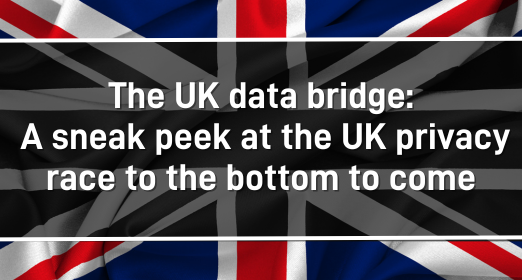
The UK data bridge: a sneak peek at the UK privacy race to the bottom to come
The UK extension to the EU – US Transatlantic Data Privacy Framework will come into force on 12 October. Its adoption provides a sneak peek at the future of UK international data transfers, and the erosion of essential guarantees against surveillance measures that the UK data protection reform would bring.
Read more
-
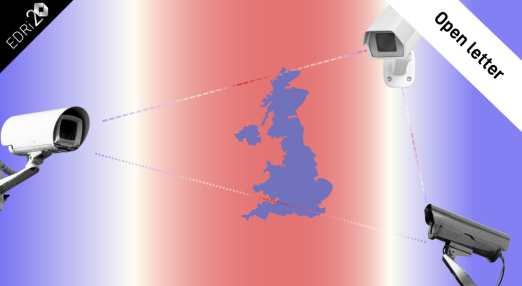
Online Safety Bill insecure: international organisations, academics and cyber experts urge UK government to protect encrypted messaging
EDRi, Open Rights Group and over 80 civil society organisations, academics and cyber experts from 23 countries have written to the UK government to raise the alarm about proposed powers in the Online Safety Bill.
Read more
-

Snowden revelations: ten years on
Ten years ago, the first revelations about US mass surveillance were published in the UK and USA. The revelations swiftly widened to encompass details about the role of the UK’s GCHQ (Government Communications Headquarters) in the global gathering of vast amounts of communications data.
Read more
-

The UK will treat online images of immigrants crossing the Channel as a criminal offence
On 17 January, the United Kingdom (UK) government announced that online platforms will have to proactively remove images of immigrants crossing the Channel in small boats under a new amendment to be tabled to the Online Safety Bill. The announcement, intended to bolster the UK’s hostile immigration policy, has been met with concern among the British public and charities working with people on the move.
Read more
-
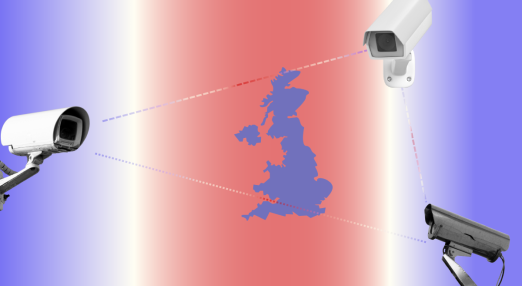
Update: UK’s Online Safety Bill heralds a trio of surveillance
The UK’s Online Safety Bill was back in the Westminster Parliament in December It had been stalled for five months whilst the new British government made a few changes. A Parliamentary debate on Monday (5 December 2022) revealed the shift in policy direction for the first time. It’s a relatively small change with big implications. Read more about the changes.
Read more
-

Securing privacy: Privacy International on end-to-end encryption
EDRi member Privacy International's (PI) report on end-to-end encryption (E2EE) analyses and defends expanding the use of E2EE to protect our communications. It defines E2EE, delves into its human rights implications, briefly addresses some prominent proposals for government access to E2EE content, and concludes with PI’s recommendations regarding E2EE.
Read more
-

WFH – Watched from Home: Office 365 and workplace surveillance creep
In the past few years, the pandemic and the shift to working from home have bolstered the use of remote surveillance software to monitor employees. In 2020, global demand for employee monitoring software increased 108 per cent by April and 70 per cent by May 2020 compared to pre-pandemic times. At the same time, search engine queries for "How to monitor employees working from home" increased by 1,705 per cent in April and 652 per cent in May 2020 compared to the previous year.
Read more
-
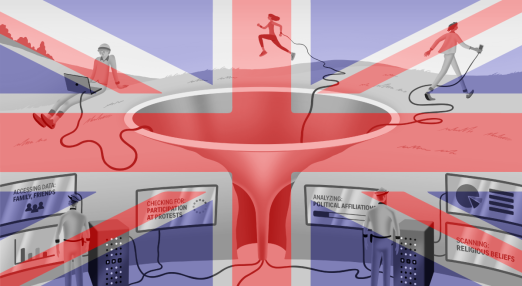
The UK Data Reform Bill and the British Bill of Rights: a tragedy in two acts
The dust hasn’t settled since plans to undermine everyone’s right to data protection were announced, but the UK Government are at it again. Plans to ditch the Human Rights Act in the UK were just unveiled, in a combined effort to steamroll the rule of law and the freedoms we have always taken for granted. EDRi member Open Rights Group explains how the impact of this constitutional butchery reverberates in data protection, and why both the Data Reform Bill and the Bill of Rights follow a common thread.
Read more
-

Challenging the use of GPS tags to monitor asylum seekers in the UK
The latest rollout of GPS tags to monitor migrants is another step in creating a 'hostile environment' for asylum seekers in the UK.
Read more
-
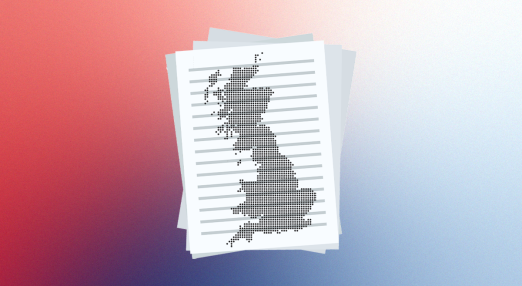
Post-Brexit data protection laws are coming, and we should all be concerned about it
The UK Government are expected to reveal their Post-Brexit data protection bill on 10 May. They are proposing a framework that frames personal data in terms of economic assets and aims to "cut red tape" to promote their commercial use. These ideas draw considerable support among corporate lobbyists and large technology companies, which would no doubt leverage the "UK example" to advocate for weaker data protection standards in Europe. In turn, understanding and opposing these changes should not be seen as a domestic issue, but as a major threat for digital rights advocates across the globe.
Read more
-

UK High Court rules blanket seizure of asylum seekers’ phones breached Article 8 ECHR
On 25 March 2022, the UK High Court ruled that the Home Office acted unlawfully and breached human rights and data protection laws by operating a secret, blanket policy of seizing, retaining and extracting data from the mobile phones of asylum seekers arriving by small boat to UK shores between April and November 2020.
Read more
-

The Online Safety Bill: punishing victims
The government has today announced two new regressive and unworkable additions to the Online Safety Bill. With each new announcement, the Bill demonstrates itself to make the online world less safe for the people it claims to protect, particularly LGBTQ+, survivors of abuse and ethnic minorities.
Read more
